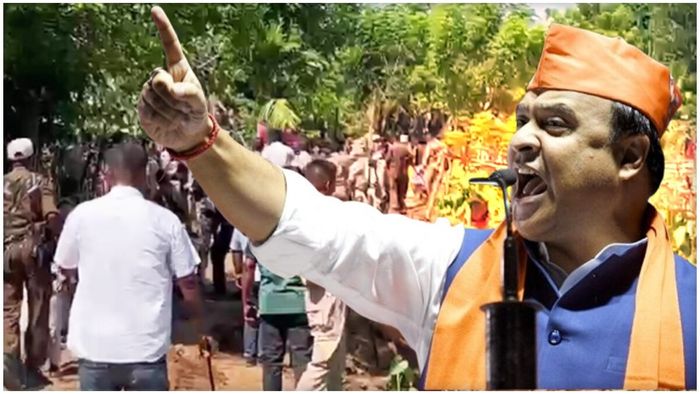Assam CM defends eviction drives, says action targeted at ‘Miya-Muslims’
Assam CM Himanta Sarma denies eviction drives target minority areas, focusing on Miya-Muslim encroachments. Protests will not stop the ongoing land clearance campaign.

- Aug 11, 2025,
- Updated Aug 11, 2025, 7:52 PM IST
Assam Chief Minister Himanta Biswa Sarma, on Monday, August 11, rejected allegations that the state’s ongoing eviction drives are aimed at minority-dominated areas, insisting they are specifically targeting ‘Miya-Muslims’ who have encroached on forest and other reserved lands.
Speaking to reporters in Chirang, Sarma said the eviction drives are being carried out on forest land, village grazing reserves (VGR), and professional grazing reserves (PGR) illegally occupied by the ‘Miya-Muslim’ community. The term ‘Miya’ has historically been used as a pejorative for Bengali-speaking Muslims in Assam, who are often perceived as Bangladeshi immigrants by other communities.
“Eviction is not in minority-dominated areas. It is for ‘Miya-Muslims’ who have encroached on forest or reserved land. Our people do not encroach on such land. If Bodo or Mising communities are found there, they might be eligible for ‘patta’. Non-tribals, however, cannot get ‘patta’ in forest land,” Sarma asserted.
Claiming that ‘Miya-Muslims’ already occupy vast tracts of riverine ‘chars’ where other communities have not settled, the chief minister said, “Half of Assam’s land is there for them at the chars. From there, they want to move to Sivasagar, Jorhat, and Golaghat. How can that happen? Where will Assamese people stay?”
On the All Assam Minority Students’ Union (AAMSU) protesting in Dhubri against the eviction drives, Sarma maintained that demonstrations would not alter government policy. “We will do what we have committed to doing. If AAMSU creates more noise, more evictions will be carried out,” he warned.
Responding to speculation that land cleared in Golaghat and Karbi Anglong would be handed over to industrial giants, Sarma said the reclaimed areas are being used for plantations, adding that companies like Adani and Ambani are welcome if they set up industries in the region.
The chief minister reiterated that the eviction campaign would continue until all encroached land in Assam is cleared. He claimed that 29 lakh bighas—over 9.5 lakh acres—remain under encroachment, while 1.29 lakh bighas have been freed in the last four years.